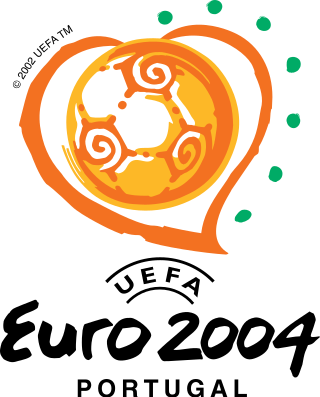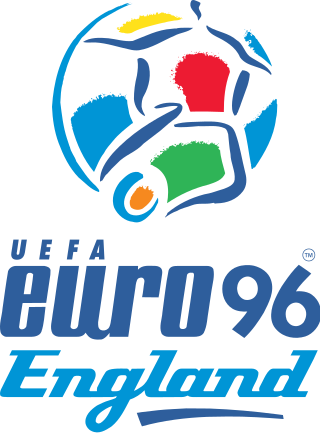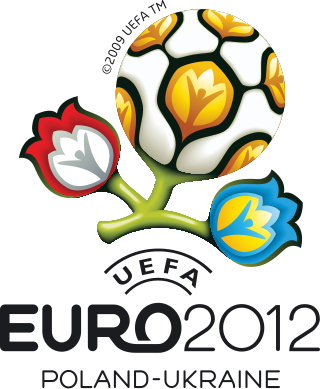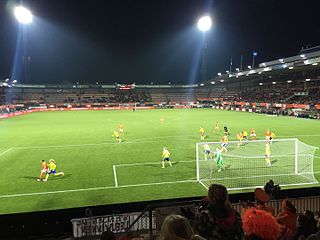Standings
| Pos | Team | Pld | W | D | L | GF | GA | GD | Pts |
|---|---|---|---|---|---|---|---|---|---|
| 1 | 4 | 2 | 1 | 1 | 6 | 4 | +2 | 5 | |
| 2 | 4 | 2 | 0 | 2 | 5 | 3 | +2 | 4 | |
| 3 | 4 | 1 | 1 | 2 | 2 | 6 | −4 | 3 |
Group 9 consisted of three of the 32 teams entered into the European zone: [1] Greece, Hungary, and Soviet Union. These three teams competed on a home-and-away basis for the half spot of the 8.5 spots assigned to UEFA in the final tournament. The European spot in the UEFA - CONMEBOL would be assigned to the group's winner.
Hungary would go on to win the World Cup spot in that qualifier.
| Pos | Team | Pld | W | D | L | GF | GA | GD | Pts |
|---|---|---|---|---|---|---|---|---|---|
| 1 | 4 | 2 | 1 | 1 | 6 | 4 | +2 | 5 | |
| 2 | 4 | 2 | 0 | 2 | 5 | 3 | +2 | 4 | |
| 3 | 4 | 1 | 1 | 2 | 2 | 6 | −4 | 3 |
| Greece | 1 – 1 | |
|---|---|---|
| Papaioannou | Report | Kereki |
| Soviet Union | 2 – 0 | |
|---|---|---|
| Konkov Kipiani | Report |
| Hungary | 2 – 1 | |
|---|---|---|
| Nyilasi Kereki | Report | Kipiani |
| Greece | 1 – 0 | |
|---|---|---|
| Papaioannou | Report |

The UEFA European Football Championship, less formally the European Championship and informally the Euros, is the primary association football tournament organised by the Union of European Football Associations (UEFA). The competition is contested by UEFA members' senior men's national teams, determining the continental champion of Europe. It is the second-most watched football tournament in the world after the FIFA World Cup; the Euro 2016 final was watched by a global audience of around 600 million. The competition has been held every four years since 1960, except for 2020, when it was postponed until 2021 due to the COVID-19 pandemic in Europe, but kept the name Euro 2020. Scheduled to be in the even-numbered year between FIFA World Cup tournaments, it was originally called the European Nations' Cup before changing to its current name in 1968. Since 1996, the individual events have been branded as "UEFA Euro [year]".

The 2004 UEFA European Football Championship, commonly referred to as Euro 2004, was the 12th edition of the UEFA European Championship, a quadrennial football competition contested by the men's national teams of UEFA member associations. The final tournament was hosted for the first time in Portugal, from 12 June to 4 July 2004. A total of 31 matches were played in ten venues across eight cities – Aveiro, Braga, Coimbra, Guimarães, Faro/Loulé, Leiria, Lisbon, and Porto.

The 1996 UEFA European Football Championship, commonly referred to as Euro 96, was the 10th UEFA European Championship, a quadrennial football tournament contested by European nations and organised by UEFA. It took place in England from 8 to 30 June 1996. It was the first European Championship to feature 16 finalists, following UEFA's decision to expand the tournament from eight teams.

The 1980 UEFA European Football Championship finals tournament was held in Italy. This was the sixth UEFA European Championship, which is held every four years and endorsed by UEFA. It was the first European Championship to feature eight teams in the finals, which took place between 11 and 22 June 1980. West Germany won the final 2–1 against Belgium for their second title. This was the last European Championship with a third place play-off.

The 2008 UEFA European Football Championship, commonly referred to as UEFA Euro 2008 or simply Euro 2008, was the 13th UEFA European Championship, a quadrennial football tournament contested by the member nations of UEFA. It took place in Austria and Switzerland from 7 to 29 June 2008.

The 2012 UEFA European Football Championship, commonly referred to as UEFA Euro 2012 or simply Euro 2012, was the 14th European Championship for men's national football teams organised by UEFA. The final tournament, held between 8 June and 1 July 2012, was co-hosted by Poland and Ukraine, and was won by Spain, who beat Italy in the final at the Olympic Stadium, Kyiv, Ukraine.

The 2015 UEFA European Under-19 Championship was the 14th edition of the UEFA European Under-19 Championship, the annual European youth football competition contested by the men's under-19 national teams of the member associations of UEFA. Greece hosted the tournament. Players born on or after 1 January 1996 were eligible to participate in this competition.

The 2016 UEFA European Under-19 Championship was the 15th edition of the UEFA European Under-19 Championship, the annual European international youth football championship contested by the men's under-19 national teams of UEFA member associations. Germany, which were selected by UEFA on 20 March 2012, hosted the tournament between 11 and 24 July 2016.

The 2017 UEFA European Under-17 Championship was the 16th edition of the UEFA European Under-17 Championship, the annual international youth football championship organised by UEFA for the men's under-17 national teams of Europe. Croatia, which were selected by UEFA on 26 January 2015, hosted the tournament.

The 2016 UEFA Women's Olympic Qualifying Tournament was an international football competition organised by UEFA to determine the final women's national team from Europe to qualify for the 2016 Summer Olympics women's football tournament in Brazil. The tournament was played between 2 and 9 March 2016 in the Netherlands.
Group 1 consisted of four of the 32 teams entered into the European zone: Cyprus, Denmark, Poland, and Portugal. These four teams competed on a home-and-away basis for one of the 8.5 spots in the final tournament allocated to the European zone. The spot would be assigned to the group's winner.
Group 3 consisted of four of the 32 teams entered into the European zone: Austria, East Germany, Malta, and Turkey. These four teams competed on a home-and-away basis for one of the 8.5 spots in the final tournament allocated to the European zone. The spot would be assigned to the group's winner.
Group 4 consisted of four of the 32 teams entered into the European zone: Belgium, Iceland, Netherlands, and Northern Ireland. These four teams competed on a home-and-away basis for one of the 8.5 spots in the final tournament allocated to the European zone. The spot would be assigned to the group's winner.
Group 5 consisted of three of the 32 teams entered into the European zone: Bulgaria, France, and Republic of Ireland. These three teams competed on a home-and-away basis for one of the 8.5 spots in the final tournament allocated to the European zone. The spot would be assigned to the group's winner.
Group 6 consisted of three of the 32 teams entered into the European zone: Norway, Sweden, and Switzerland. These three teams competed on a home-and-away basis for one of the 8.5 spots in the final tournament allocated to the European zone. The spot would be assigned to the group's winner.
Group 7 consisted of three of the 32 teams entered into the European zone: Czechoslovakia, Scotland, and Wales. These three teams competed on a home-and-away basis for one of the 8.5 spots in the final tournament allocated to the European zone. The spot would be assigned to the group's winner.
Group 8 consisted of three of the 32 teams entered into the European zone: Romania, Spain, and Yugoslavia. These three teams competed on a home-and-away basis for one of the 8.5 spots in the final tournament allocated to the European zone. The spot would be assigned to the group's winner.
Group 1 consisted of four of the 32 teams entered into the European zone: Austria, Hungary, Malta, and Sweden. These four teams competed on a home-and-away basis for one of the 9,5 spots in the final tournament allocated to the European zone, with the group's winner claiming this spot.
Group 4 consisted of four of the 32 teams entered into the European zone: Albania, East Germany, Finland, and Romania. These four teams competed on a home-and-away basis for one of the 9.5 spots in the final tournament allocated to the European zone, with the group's winner claiming the place in the finals.
Group 7 consisted of three of the 32 teams entered into the European zone: Greece, Spain, and Yugoslavia. These three teams competed on a home-and-away basis for one of the 9.5 spots in the final tournament allocated to the European zone, with the group's winner claiming the place in the finals. This group required a play-off to decide the winner.